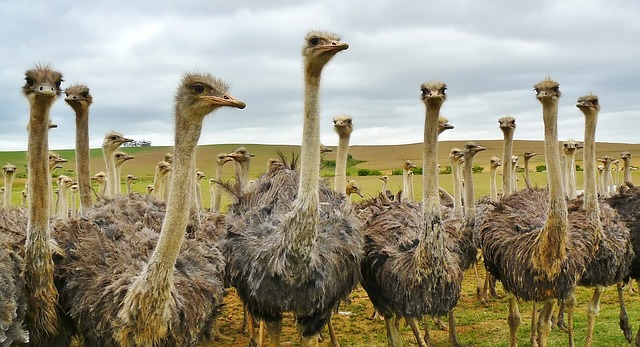We often hear that “we are all connected”, but that mostly refers to some spiritual understanding of how we are all equally “connected” to the Creator, rather than directly to each other. I know the cosy feeling of being part of a Bigger Whole, and how we just want to integrate everything and everyone. What I’m cautious about is dat such ubiquitous connecting is not self-critial. It is done without a second thought. Any second thought (“would they get along well?”) would ruin our feeling of Connectedness. But the absense of critical thinking means that we can never differentiate between all these wonderful connections. We can’t consider ourselves more connected to Francis than to Joseph, because that would require a critical assessment of who they are, an assessment that sends ripples through our sense of Oneness.
If you walk in a forest and you feel connected to a tree, that’s because of the unique smell of its bark, the wondrous shape of its canopy, or the sound of the songbirds that made their nests on its branches. It’s not just because we feel connected to the forest. Connections that can’t be differentiated aren’t any.
So, are we “all connected”, and how can we maintain that warm religious passion for the Bigger Whole that connects us all, when we begin to differentiate and make some connections more meaningful than others? This becomes our challenge: How can we maintain the illusion of a universal connectedness that includes everyone when we feel more connected to some?
The more meaningful connections our hearts know are possible
Of course we are connected to our friends, and occassionally introduce new friends to old ones, bring friends of friends together, and so on. On the personal level, we behave like connection brokers. But can we do it on a bigger scale? Can we become people brokers like there are real estate brokers? Since we can’t all be friends, this might seem awkward. If we connect two people without a clear (monetary) interest ourselves, and we are not their friends – what could possibly be our motivation?
A sense of collectivism. The exact thing that has been fought by decades of neoliberal propaganda. Mind that I’m not referring to any collectivist structure or mode of production. It’s just that: a sense, in the same way as we talk about environmentalism. When we do something “for the planet”, we have a vague understanding of the large blue bead and we make the connection between that image and consuming less resources. We no longer need to explain our motive, the idea of “the planet” takes care of that. In the same way, our motivation to connect who we think can co-operate well has a simple source: We want everyone to be qualitively better connected.
Will the computers connect us?
We could think of connecting in mathemetical terms. Any mathematician could reformulate our “problem” of connecting to each other in terms of an optimization puzzle. We have data: mutual interests, background, DSM-coded psychological needs, and we have algorithms to crunch the numbers. This works successfully in online dating. The one little detail is that we are no static entities. We learn, we develop, our interests and psychological needs change all the time and keeping that up to date in a profile would require either a 24-hour commitment or permanent brain scanning – both of which are at the moment undesirable.
In other words: Connecting us is an essentially human task if there ever was one. It requires intuition, the sense that certain people would get along well and would have to say something to each other. It requires intuitive understanding of a person’s temperament, sense of humor, irony, and even their projections, subconscious desires, inner urge.
Since we can’t fix that with an algorithm, what is there we can do? As with many other things in our virtual world, it becomes a question of building cultures, not software. Or more precisely: building cultures around good software.
If we become fully aware of the value of our actions on social networks, of the consequences in the real world of our virtual behavior, yes of the modicum of power we excersise through such networks, we can accomplish great things.
We somehow identify with humankind. Instead of the little blue planet, we see a world wide web.
The world wide web in our head becomes a web of interconnected friends, and we have created some of the connections ourselves. We see it now as something we are not only an intimate part of, but thoroughly equal with all others who create new links as well. This is the essential difference with the image of the blue planet, which can overwhelm us so we don’t really feel a part of it. That is the promise of the world wide web, that we are not only rationally, but emotionally, sure to be an essential part of it.
It is the idea that our minds form a neural network, in which each element is aware of the existence of the entire network. And exists on the same level. Such a meme would be godly in the true Leibnizian sense of the word.
